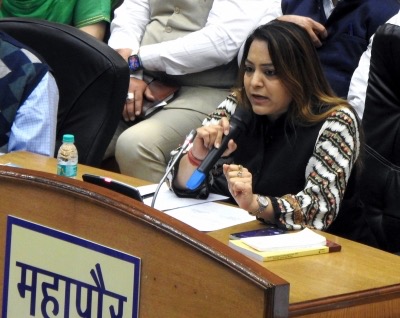Ishika Kumar, Pune
Shelly Oberoi, the mayor of Delhi, has filed a petition in the Supreme Court of India regarding the recently held elections for the sixth member of the Municipal Corporation Delhi’s (MCD) standing committee.
The Bharatiya Janata Party (BJP) secured the last seat in this election, which was held on the 27th of September, unopposed. Councillors of the Aam Aadmi Party (AAP) have abstained from accepting the election results as an answer-back and are against it. AAP claims that the election process was in violation of the Delhi Municipal Corporation Act and hence was conducted unconstitutionally.
The BJP is being accused of “Murdering democracy” by Chief Minister Atishi who called the election “illegal and unconstitutional”. She stated that the country’s governance should be guided by the constitution and its laws, not “hooliganism”, insisting that only the mayor can determine the time and place for these elections. She also vowed that AAP would challenge the results in the Supreme Court, and they did.
As per Regulation 51 of the DMC Procedure and Conduct of Business Regulations, 1958, only the mayor is authorized to preside over such meetings and the same has been mentioned by Shelly Oberoi’s petition. This meeting was chaired by an IAS officer, who is appointed under the direction of the Lieutenant Governor (LG), Oberoi’s legal aid has argued that this is illegal and unconstitutional. Under Section 76 of the DMC Act, an elected mayor’s role in such a meeting can be undermined by the power of LG’s role.
In opposition, the BJP has defeated the election process which took place. Delhi BJP President Virendra Sachdeva dismissed all of AAP’s allegations and deemed them as politically motivated. According to section 45 of the DMC Act which Sachdeva cited, the formation of the Standing Committee is mandatory, and under the ambit of Section 487, the LG and Municipal Commissioner have an undoubted authority to convene the meeting under certain special circumstances, along with appointing an officer to oversee the proceedings if necessary.
The election outcome shifted the balance of power within the 18-member standing committee, handing the BJP control over crucial budgetary decisions. The legal battle which has been sparked, now awaits an urgent hearing in the Supreme Court, a decision that could significantly influence both the MCD’s governance and the broader overall political dynamics in Delhi.
